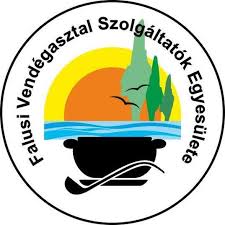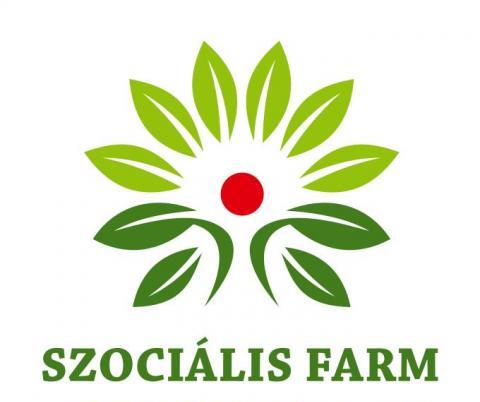
Welcome to the 3rd issue of the CUES newsletter!
As we close the 3rd semester of our journey towards sustainable food systems, we share updates from the work done.From completing foundational surveys to preparing real-life intervention pilots and engaging in EU-level policy dialogues, this has been a pivotal period for the project.
Insights from Research
During the 3rd semester, our partners from Erasmus University of Rotterdam, KU Leuven and University of Valencia made significant progress across its tasks. Data collection for the representative surveys on social and individual factors influencing sustainable food choices was successfully completed, and analysis is ongoing. A qualitative study exploring resistance to plant-based diets has been finalised and submitted to the British Food Journal, with related findings presented at five major European conferences. KU Leuven published a systematic review examining the impact of psychological state factors on sustainable food behaviour, offering valuable insights into consumer motivation. Meanwhile, the University of Valencia launched the first phase of its assessment of the physical food environment,with protocols and multilingual tools prepared for collecting sustainability messages in real-life settings. The next phase, involving consumer focus groups,is scheduled to begin after October 15!
Co-designing Innovative and Inclusive Interventions
Erasmus University of Rotterda, ICLEI and the intervention leads have been actively co-designing inclusive interventions to foster sustainable food practices across diverse local communities. Informed by the research findings and developed through participatory back-casting, future-oriented scenarios have been created, each tailored to a vulnerable group, from primary school children in Italy’s Piedmont region to older adults and low-income families in Hungary and Portugal.
Focus Groups in Italy
 OpenDot began its work locally with a digital intervention designed to democratise access to information on food sustainability. Field research was launched in Milan, starting at the Acquabella community centre. Two focus groups involving participants over the age of 65 explored their knowledge, habits, and challenges related to making sustainable food choices. The sessions provided a valuable exchange, rich with personal stories, reflections, and questions, that will inform the design of more inclusive and accessible communication tools.
OpenDot began its work locally with a digital intervention designed to democratise access to information on food sustainability. Field research was launched in Milan, starting at the Acquabella community centre. Two focus groups involving participants over the age of 65 explored their knowledge, habits, and challenges related to making sustainable food choices. The sessions provided a valuable exchange, rich with personal stories, reflections, and questions, that will inform the design of more inclusive and accessible communication tools.
OpenDot is also developing open-source educational tools for primary school children in Italy, specifically in the Val di Lana area, with a focus on students from migrant backgrounds or minority communities. The initiative addresses unequal access to information on sustainability and the limited public awareness of the environmental, social, and cultural dimensions of food. The goal is to create an engaging educational experience that introduces the concept of healthy and sustainable food, exploring topics such as seasonality, local sourcing, plant-based diets, and organic or sustainable production methods. At the same time, the program aims to celebrate diverse food traditions and cultures, fostering intercultural dialogue from an early age.

Mapping Policies and Engaging Stakeholders
Over the past semester, significant strides have been made in shaping the policy dimension of the CUES project. A comprehensive mapping and analysis of the strengths and shortcomings of existing and upcoming EU policies related to sustainable claims, labelling, and initiatives aimed at promoting the sustainable and ethical consumption of food products. Jointly led by the Fair Trade Advocacy Office (FTAO) and the University of Heidelberg, the research is now in its final stages, with a particular focus on regional and national policies that are more progressive than those at EU level.
Several key policy gaps have already been identified at EU level, including:
- A disconnect between addressing non-communicable diseases and promoting healthy diets
- A lack of legislative support for plant-based diets, despite increasing scrutiny of meat consumption
- The tension between traditional food cultures and the need for cultural transition towards sustainable consumption
Examples of good practices and enabling policy environments to address these gaps have been identified in several countries, including Spain, France, Italy, and Austria.
Finally, ICLEI and FTAO have begun preparations for four multi-actor policy dialogues, including two at EU level (Brussels) and two regionally (Hungary and Greece). The first dialogue will be hosted in Hungary.
Assessing Cultural and Food Value Chain Change
Erasmus University of Rotterdam has successfully conducted baseline surveys in Hungary, Italy, and Portugal, targeting populations surrounding the intervention sites. These surveys targeted key populations around the intervention locations, such as older adults, low-income individuals, and parents from minority backgrounds, to establish a foundation for measuring cultural shifts in sustainable food consumption. During this period, Eindhoven University of Technology developed a baseline survey to assess how agri-food organisations adopt and use digital transparency tools. The survey explores tool types and goals, organisational characteristics, and factors influencing adoption, along with evaluating transparency in terms of clarity, accuracy, and information disclosure.
3rd Project Meeting
On March 11-12, 2025, the project’s consortium—comprising leading researchers, policymakers, and value chain partners—gathered online to discuss the progress made so far and the next steps toward a more sustainable food consuming.

We had the opportunity to have with us João Costa Leite, Scientific Officer at the Joint Research Centre (JRC) and member of the CUES Advisory Board, who delivered a compelling presentation on the development of the EU Food System Monitoring Framework. This framework addresses not only environmental and nutritional dimensions, but also economic and social factors—such as affordability, inclusiveness, food messaging, and dietary health outcomes.
CUES on the Road
Budapest University of Economics and Business (BUEB), Hungary
 CUES and the Hungarian Intervention Case were presented at the BUEB by Kislépték Association as part of an academic course aimed at enhancing students’ understanding of sustainability and the circular economy. It included interactive exercises, group work, and collaborative reflections on global challenges and local solutions.
CUES and the Hungarian Intervention Case were presented at the BUEB by Kislépték Association as part of an academic course aimed at enhancing students’ understanding of sustainability and the circular economy. It included interactive exercises, group work, and collaborative reflections on global challenges and local solutions.
| Explore more here. |
Yunnan Agricultural University (YAU), China
CUES made its first presentation in the heart of China’s most biodiverse province, captivating more than 150 bachelor students at YAU with insights into industry-research co-creation. The presentation was given by Kun Han from our partner Wageningen University & Research, who not only showcased CUES’s impact but also sparked fresh ideas among China’s next generation of agricultural practitioners.

| Explore more here. |
ICEP, ACEI, ICORIA, and PHAIR Conferences
 CUES was featured at four major academic conferences (ICEP, ACEI, ICORIA, and PHAIR) through the contributions of PhD candidate Leonie C. Peiffer from our project partner and coordinator Erasmus University Rotterdam. These events provided an excellent opportunity to disseminate CUES research on sustainable food transitions and consumer behaviour to diverse scientific communities.
CUES was featured at four major academic conferences (ICEP, ACEI, ICORIA, and PHAIR) through the contributions of PhD candidate Leonie C. Peiffer from our project partner and coordinator Erasmus University Rotterdam. These events provided an excellent opportunity to disseminate CUES research on sustainable food transitions and consumer behaviour to diverse scientific communities.
| Explore more here |
EGOS 2025 Colloquium
CUES was also present at the EGOS 2025 Colloquium in Athens, through the participation of Eindhoven University of Technology. Early-stage research on transparency and traceability in agri-food value chains was shared during the Methods in Social Evaluations Professional Development Workshop (PDW). This PDW focused on peer learning and constructive feedback among early-career researchers, offering a valuable setting for methodological exchange around social evaluations.

| Explore more here |
Fostering Strong Synergies
EU Cluster for Food Traceability and Trust
CUES is a proud member of the EU Cluster for Food Traceability and Trust, a growing community of 13 EU-funded projects working together to strengthen transparency, traceability and integrity in food supply chains!

| See our synergy projects here… |
 TITAN Project’s Workshop in Rome
TITAN Project’s Workshop in Rome
CUES was represented at the TITAN’s workshop in Rome, titled “Leveraging Digital Transparency and Competitive Advantage in the Food System through the EU Green Deal”, by our partner Eindhoven University of Technology
| Explore more here… |

















